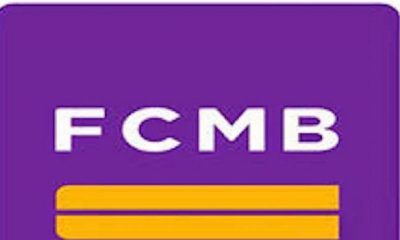Banking
Q3 2016: FCMB Makes N14.2b Profit As Customers’ Deposits Fall By 4%
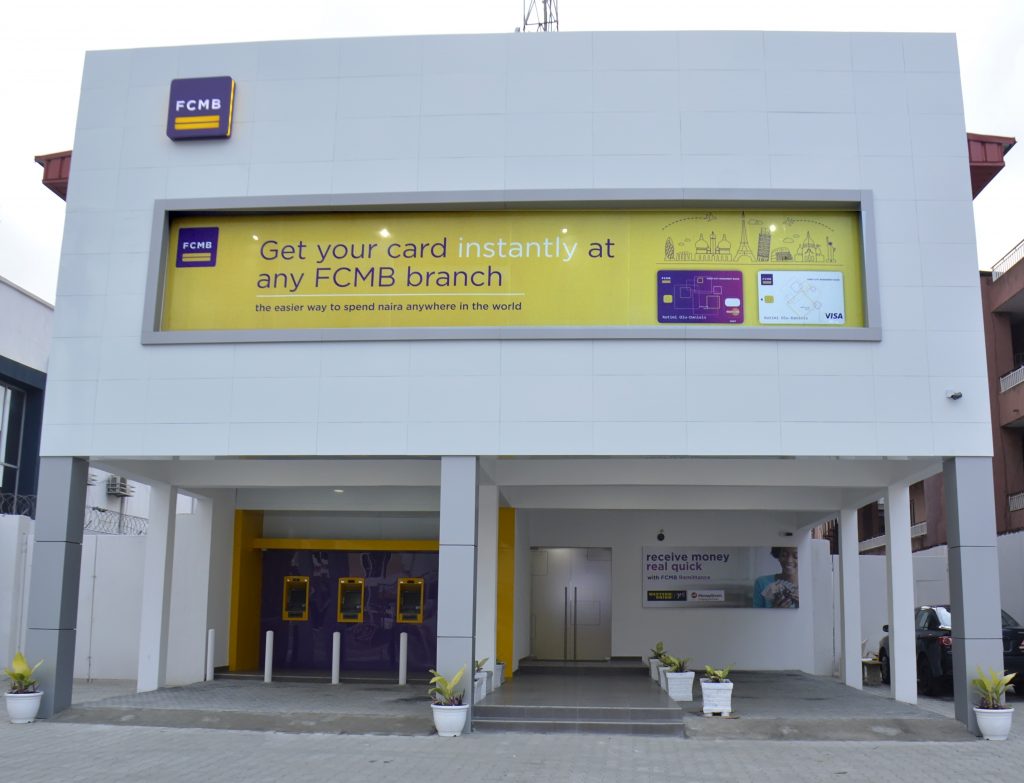
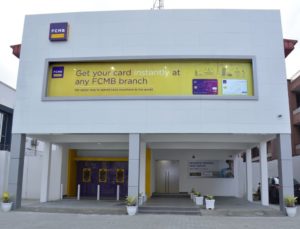
By Modupe Gbadeyanka
FCMB Group Plc has finally released its unaudited group results for the nine-months ended September 30, 2016 as earlier promised.
It would be recalled that FCMB could not submit its results earlier as expected due to the bank’s interim audit, but promised to make the results available before the end of November 30, 2016.
In the released report, FCMB recorded a gross revenue of N140.7 billion for the period under review, indicating an increase of 29 percent from N109.3 billion for the same period prior year.
It also recorded a profit before tax of N14.2 billion for the nine-months ended September 30, 2016, a 453 percent rise from N2.6 billion for the nine-months ended September 2015.
Its non-interest income was N44.8 billion, an increase of 128 percent Year-on-Year (YoY) from N19.6 billion for the same period prior year.
FCMB explained that this increase was mainly driven by a 612 percent YoY increase in FX income, from N5.0 billion for the nine-months ended September 2015, to N35.3 billion for the nine-months ended September 2016.
Also, its net impairment on loans up 206 percent YoY to N31.3 billion for the nine-months ended September 2016, from N10.2 billion for the same period prior year, primarily due to oil and gas exposures and delayed salary payments, while its operating expenses were down 2 percent YoY to N49.3 billion, for the nine-months ended September 2016.
Also, loans and advances were flat Quarter-on-Quarter (QoQ) to N657.1 billion in September 2016 (N657.0 billion in June 2016), while the total assets was down 4 percent QoQ to N1.2 trillion in September 2016 (N1.3 trillion in June 2016).
It was also disclosed in the report that customer deposits shrank by 4 percent QoQ to N664.3 billion in September 2016 (N689.3 billion in June 2016).
Commenting on the results, Managing Director of FCMB Group Plc, Mr Peter Obaseki, noted that, “The audited nine months results for the period ended September 2016, reflects our focus on key soundness ratios and the need to maintain buffers against a sustained adverse operating environment.
“Accordingly, capital adequacy and liquidity ratios have held up at 17.6% and 36.8 percent, respectively.
“Underlying revenue momentum remains strong while cost optimisation programme led to a 2 percent YoY drop in operating expenses, despite inflationary spiral. Overall, profit before tax came in at N14.2bn, a 453 percent growth, translating to an EPS of 87 kobo, up 30.6 percent, YoY, respectively.
“The macro economic conditions in the final quarter remain challenging; we will keep up a conservative stance.”
Also, the Group Managing Director of FCMB Ltd, Mr Ladi Balogun, disclosed that, “The audited results of the bank reveal that the extraordinary performance of Q2 2016 offset the loss recorded in Q3 of N2.4 billion, thereby resulting in strong year on year profit growth of 913 percent.
“In order to avoid an unsustainable, non-cash, spike in earnings from further revaluation gains in Q3, the bank also significantly stepped up its loan loss provisions. The macroeconomic climate is taking a significant toll on the bank’s borrowing customers across all segments.
“Accordingly, the bank will maintain high provision coverage ratios (currently 131 percent), continue to strengthen our capital adequacy ratio (currently 16.9%) and our liquidity ratio (currently 36.8 percent).
“While our prudential ratios should continue to strengthen into Q4 (modestly buoyed by a tier 2 capital injection of N7.5bn in November), we do not anticipate improvement in the fourth quarter earnings.
“Nonetheless, we are pleased with the gains we continue to record in growing our business in areas such as retail banking (with a 315 percent YoY growth in profitability) and increasing our share of banking activities in the agricultural sector. In spite of the fact that we have seen several revenue lines diminish due to external factors – as we build a more resilient balance sheet, we will be well positioned for a strong rebound in core earnings in the medium term.”
Banking
Onafriq, PAPSS to Launch Wallet-Based Outbound Payments from Nigeria to Ghana

By Modupe Gbadeyanka
A platform to enable cross-border intra-Africa payments for individuals, merchants, and traders in Nigeria and Ghana is being designed by Onafriq Nigeria Payments Limited in partnership with the Pan-African Payment and Settlement System (PAPSS).
The platform, currently in its pilot stage, is the first wallet-based outbound payments scheme, which is fully in Naira and instant, without relying on hard currency conversion.
The parties are working together with banks and mobile money operators in the West Africa nations.
The Central Bank of Nigeria (CBN) has already approved this initiative, which will benefit small and medium enterprises (SMEs), the real engine of intra-African trade, as they will now have access to a faster, cheaper way to reach customers and suppliers across the border.
By reducing barriers to cross-border trade, the new service will allow these businesses to grow their addressable markets and activity. From December 1, this service will be fully operational for a 6-month period.
Through the partnership with PAPSS, Onafriq, which is a CBN licensed payment service provider, is supporting the operationalization of the Africa Continental Free Trade Area (AfCFTA) mandate. The mandate itself is driving tariff-free trade for the 54 member states of AfCFTA. Within the partnership itself, Onafriq provides the mobile money rails, with an ecosystem consisting of over 1 billion mobile wallets.
Meanwhile, PAPSS brings a network of over 160 commercial banks, representing an ecosystem of more than 400 million bank accounts across its 19 African countries of operation. The two partners are essentially seamlessly connecting two worlds: mobile money and banking. As a consequence, intra-African trade transactions will take place more easily and opportunities will be created.
Currently, Africa is made up of bank and mobile-led markets, with siloes often inhibiting transactions between these economies. However, this partnership will remove these boundaries. With over one billion mobile wallets and 500 million bank wallets across Africa, this partnership will allow for cross-border collaboration at scale.
This partnership builds on Onafriq and PAPSS’ existing partnership for payments into Ghana, announced earlier this year.
“Our work with PAPSS shows what collaboration at scale can unlock—seamless, secure connections between banking systems and mobile money ecosystems. This is how we open bi-directional trade corridors, reduce costs for businesses, and give African enterprises the rails they need to trade with confidence in their own currencies. The vision is continental, but it starts with practical steps like this one,” the Managing Director for Anglophone West Africa, Mxolisi Msutwana, said.
The Chief Information Officer for PAPSS, Ositadimma Ugwu, added, “Too often, African businesses and individuals see borders as roadblocks instead of opportunities. With this step, we’re challenging that mindset, giving Nigerians the ability to send value next door with the same ease as sending a text message. Our vision is simple: make Africa’s borders invisible to payments. This pilot makes that a reality, moving us closer to a continent where payments don’t pause at the border.”
Banking
Access Bank Appoints Ifeyinwa Osime as Board Chair
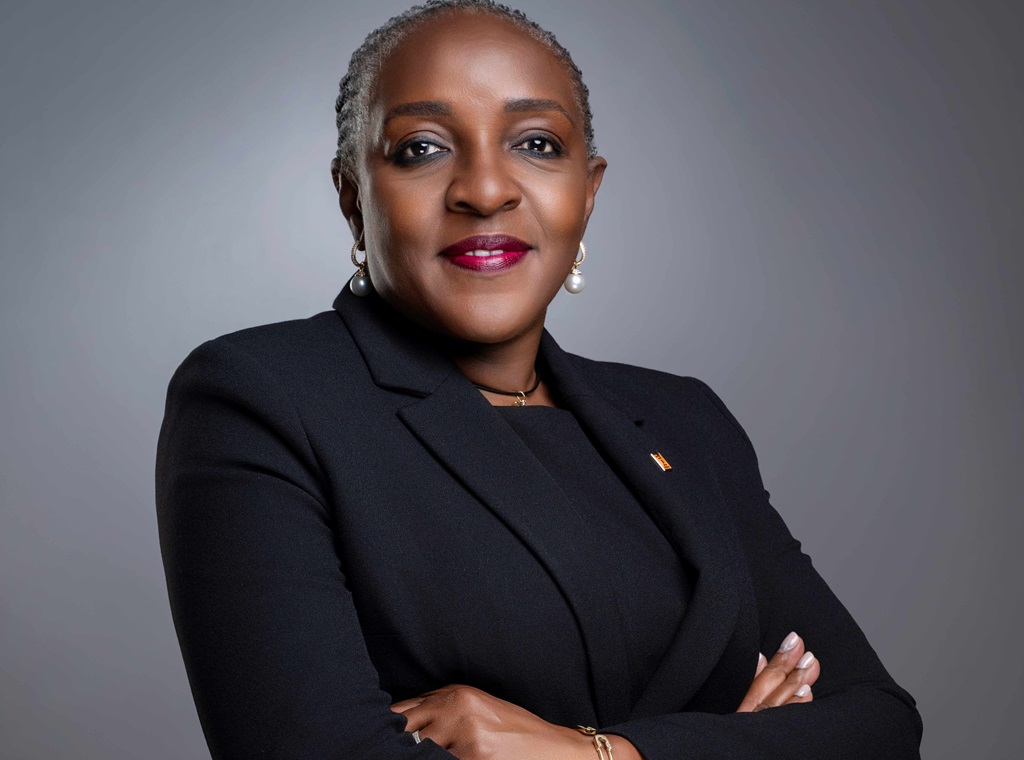
By Adedapo Adesanya
Mrs Ifeyinwa Osime has been appointed as the chairman of the board of Access Bank Plc, following the retirement of Mr Paul Usoro on January 29, according to a statement to the Nigerian Exchange (NGX) Limited.
Mrs Osime, an accomplished legal practitioner, joined Access Bank’s board in November 2019 as an independent non-executive director and had chaired the Board Human Resources and Sustainability Committee and the Governance, Nomination, and Remuneration Committee.
This role made her contribute significantly to bank’s corporate governance, leadership development, and sustainability initiatives.
In addition to her role at Access Bank, Mrs Osime is a Director at Ebudo Trust Limited and a Partner at McPherson Legal Practitioners, where she advises on corporate and commercial matters and contributes to strategic leadership.
She is also a member of the Nigerian Bar Association, Women Corporate Directors, Nigeria Chapter, and Chartered Institute of Directors Nigeria, where she serves on the Executive Committee of the Women Sectorial Group.
Beyond her professional responsibilities, Mrs Osime is committed to mentoring youths and is actively involved in the Autism and Developmental Delays Support Community, reflecting her dedication to inclusion and social impact.
Speaking on her appointment, the chairman of Access Holdings, Mr Aigboje Aig-lmoukhuede, said: “Mrs Osime is a principled and experienced leader with a deep understanding of the Bank’s strategy and values.
“She has demonstrated strong commitment to the Bank’s vision and mission, and I am confident that, under her leadership, the Bank will continue to advance its strategic objectives of delivering sustainable value to shareholders and other stakeholders in the pursuit of its vision to become the world’s most respected African Bank.”
He also congratulated Mr Usoro on the completion of his tenure and for his exemplary leadership, dedication and significant contribution to the Group, saying he remains a valued member of the Access Bank family.
Banking
Africa Energy Bank to Start Operations June as Nigeria Hands Over Headquarters
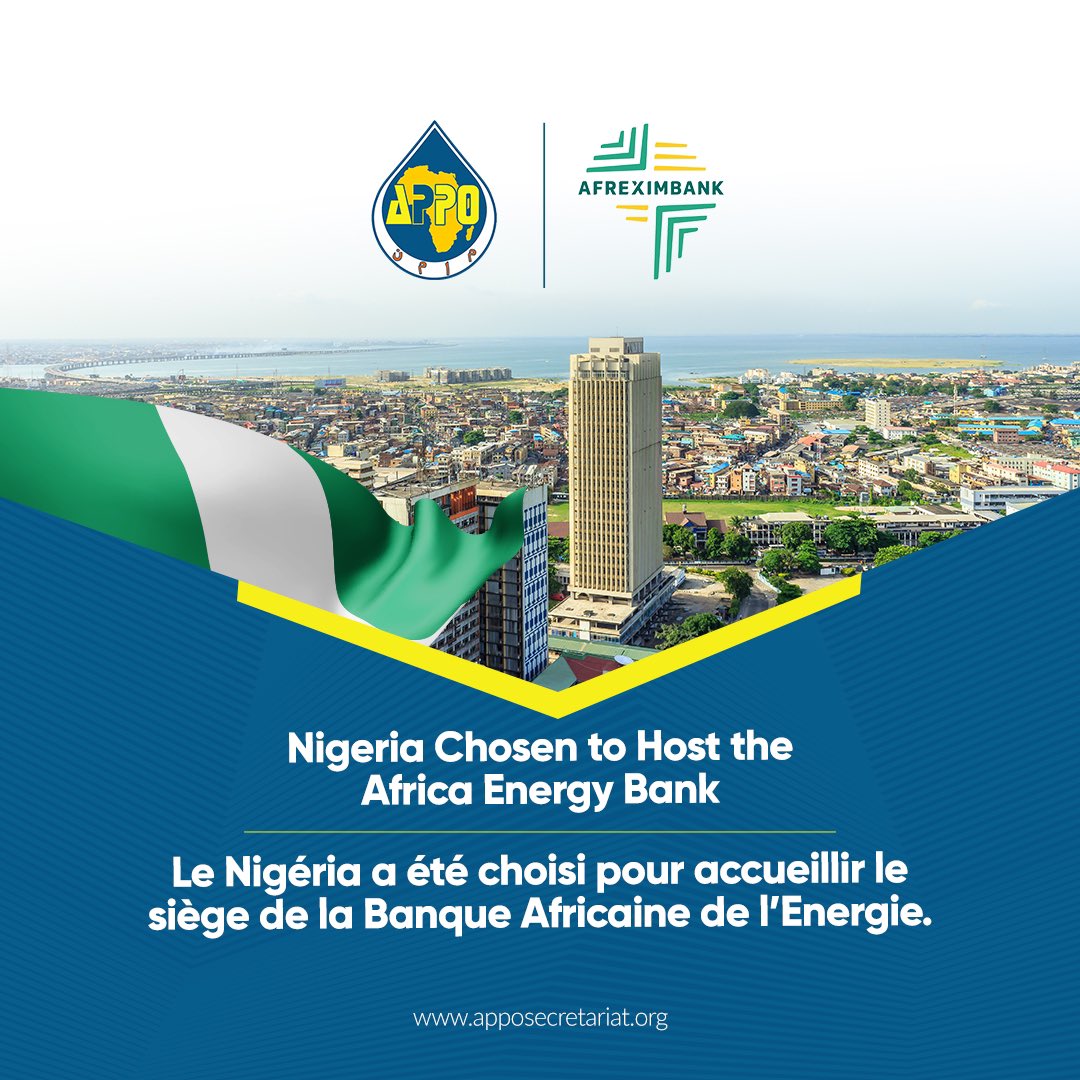
By Adedapo Adesanya
The African Energy Bank (AEB), a pan-African financial institution established to mobilise capital for the continent’s energy development and strengthen regional energy value chains, will begin operations in June 2026.
This came as Nigeria officially handed over the headquarters of bank at a ceremony held on the sidelines of the ongoing Nigeria International Energy Summit (NIES).
The president of the African Petroleum Producers’ Organisation (APPO) and Côte d’Ivoire’s Minister of Mines, Petroleum and Energy, Mr Mamadou Colibaly, praised Nigeria for its leadership in bringing the initiative to fruition, as he disclosed the bank was expected to commence operations in four months’ time.
“We are committed to launching this bank no later than June. I sincerely thank our partners for providing the headquarters and office that make this take-off possible. The African Energy Bank represents Africa’s commitment to finance, develop, and secure its own energy future by Africans, for Africans,” he said.
The African Energy Bank is a joint initiative of APPO member states and the African Export-Import Bank (Afreximbank), established to mobilise domestic and regional capital for Africa’s energy infrastructure, reduce dependence on external financing, and align energy investments with the continent’s long-term development and industrialisation agenda.
While performing the handover, Nigeria’s Minister of State for Petroleum Resources (Oil), Mr Heineken Lokpobiri, said the country had fulfilled all its responsibilities as host nation.
“Nigeria has met every obligation as host. The headquarters is ready, strategically located, and fully equipped, and we are prepared for immediate take-off.”
The ceremony highlighted a growing consensus among African leaders on the need for the continent to take greater ownership of its vast natural resources.
Through tailored financial instruments, the bank is expected to support projects across the energy value chain, including exploration, refining, renewable energy integration, and local content development, with a focus on job creation and economic value addition.
The African Energy Bank has been touted as not just another financial institution, but a strategic pillar in Africa’s quest for economic independence and long-term energy security
The African Energy Bank is a pan-African financial institution jointly promoted by APPO member states and Afreximbank to provide tailored financing solutions for energy projects across the continent, strengthen regional energy markets, and support sustainable development through improved access to capital.
-

 Feature/OPED6 years ago
Feature/OPED6 years agoDavos was Different this year
-
Travel/Tourism9 years ago
Lagos Seals Western Lodge Hotel In Ikorodu
-

 Showbiz3 years ago
Showbiz3 years agoEstranged Lover Releases Videos of Empress Njamah Bathing
-

 Banking8 years ago
Banking8 years agoSort Codes of GTBank Branches in Nigeria
-

 Economy3 years ago
Economy3 years agoSubsidy Removal: CNG at N130 Per Litre Cheaper Than Petrol—IPMAN
-

 Banking3 years ago
Banking3 years agoSort Codes of UBA Branches in Nigeria
-

 Banking3 years ago
Banking3 years agoFirst Bank Announces Planned Downtime
-

 Sports3 years ago
Sports3 years agoHighest Paid Nigerian Footballer – How Much Do Nigerian Footballers Earn


